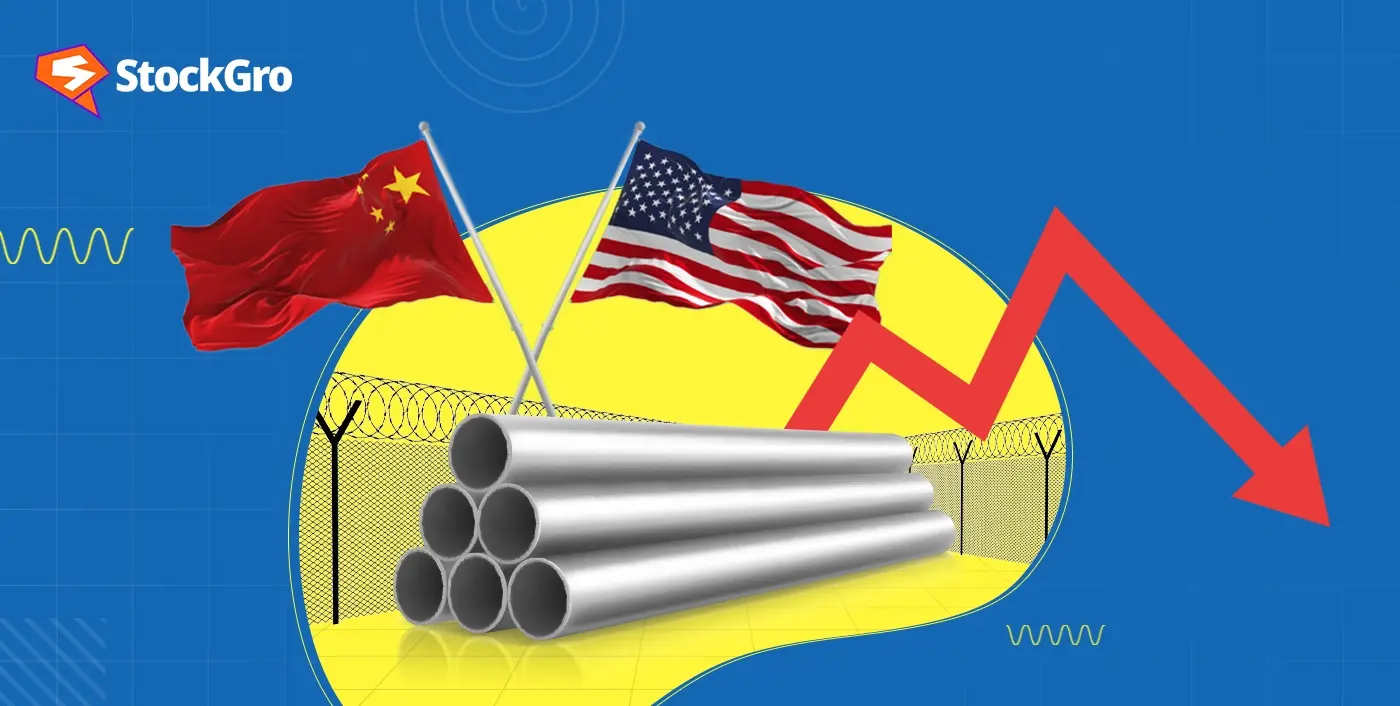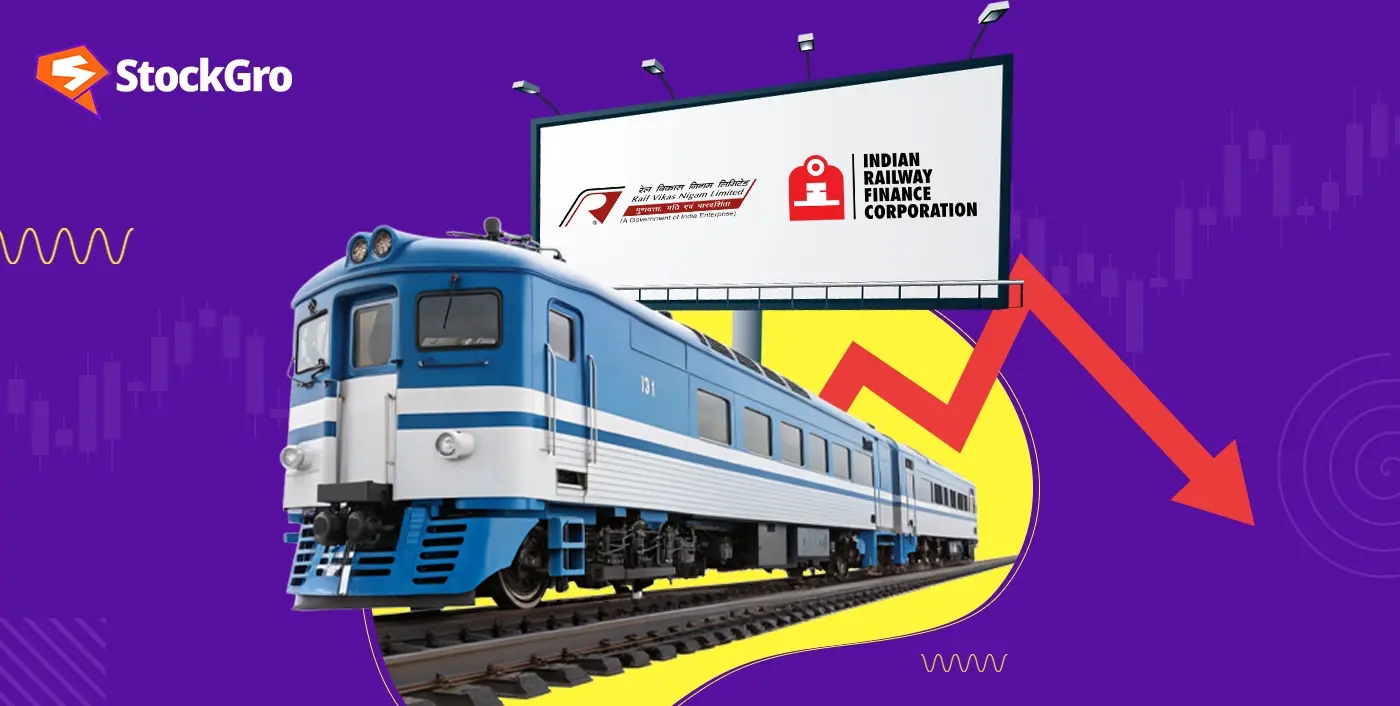
The global metals market just took a hit. With US President Donald Trump imposing 10% tariffs on China, metal stocks in India and around the world are feeling the pressure. As markets react to the trade war escalation, investors are left wondering—what’s next for metal stocks?
Metal stocks take a dive: What happened?
The Nifty Metal index slumped 3.6% on January 3, hitting a low of 8,000, as all its 15 constituents traded in the red. The biggest losers included SAIL, JSW Steel, Hindustan Copper, and National Aluminium, which saw declines ranging from 2% to 5.4%.
| Stock | % Drop |
| Vedanta | 5.2% |
| National Aluminium Co. | 5% |
| Hindustan Copper | 4.6% |
| JSW Steel | 3.8% |
| Tata Steel | 2.2% |
Trump’s decision to impose 10% tariffs on Chinese imports, alongside 25% levies on goods from Canada and Mexico, triggered an immediate sell-off in the sector. The fear? A prolonged trade war could disrupt global supply chains, push up inflation, and keep interest rates higher for longer.
Also read: IDFC First Bank Shares Drop 7% After Microfinance Weighs on Q3 Profit
Why did the US impose these tariffs?
The Trump administration justified the move by citing national security concerns and economic imbalances. The tariffs are aimed at:
- Reducing reliance on Chinese imports.
- Addressing trade imbalances with key partners.
- Putting pressure on China to modify its trade practices.
However, this protectionist stance is now shaking commodity prices, with investors worried about a slowdown in global metals demand.
Also read: Why did Tata Motors share price fall 9% today?
The impact on global metal prices
The news of increased tariffs sent base metal prices tumbling on the London Metal Exchange (LME):
| Metal | % Change |
| Copper | -1.3% |
| Aluminium | -1.5% |
| Nickel | -0.5% |
| Zinc | -1% |
| Iron Ore | -3.5% |
With China accounting for 50% of global metal output, any disruption in trade with the US could mean lower demand, weaker prices, and reduced profitability for metal companies.
Also read: Why Green Energy Stocks Are Facing Headwinds Today
What’s happening in the Indian market?
India’s metal sector, already under stress, saw major stocks tumble by up to 5%. The Nifty Metal Index was the worst-performing sectoral index, falling over 2%.
Top decliners:
- Vedanta (-5.2%)
- National Aluminium (-5%)
- Hindustan Copper (-4.6%)
- SAIL (-4.2%)
- Jindal Steel (-3.5%)
Meanwhile, the broader Nifty 50 index dropped 1.5%, reflecting a cautious sentiment across the market.
You may also read: ACC Share Price Declines After Q3 Results: Investment Advice
Will China retaliate?
China’s commerce ministry has vowed to take countermeasures but has yet to announce specifics. If China imposes retaliatory tariffs on key US imports, the trade war could worsen, leading to further volatility in commodity markets.
Also Read: Bharat Electronics Stock Rises 4% – What’s Fueling the Rally?
Potential ripple effects:
- Further price declines in base metals like copper and aluminium.
- Stronger US dollar, making metals more expensive for global buyers.
- Tighter credit conditions, slowing down infrastructure projects that drive metal demand.
Long-term outlook: Trouble ahead or a buying opportunity?
The long-term impact of the tariff war on metal shares remains uncertain. Analysts suggest that:
- Short-term pain is inevitable – Stocks could continue to slide as global economic uncertainty mounts.
- China might ramp up stimulus – If Beijing introduces monetary and fiscal measures, it could boost domestic demand for metals, stabilising prices.
- US steel may benefit – Higher tariffs could lead to higher domestic prices for US steelmakers, while hurting Asian and European exporters.
- Opportunities for long-term investors – If the sell-off deepens, some metal stocks could present attractive buying opportunities at lower valuations.
Conclusion: A rocky road ahead for metal stocks
The US-China tariff war is sending shockwaves through the global metals market. With Indian metal stocks down, commodity prices slipping, and investors cautious, the sector faces a bumpy road ahead. While some companies may weather the storm, others could struggle in the face of prolonged economic tensions.
As the dust settles, all eyes will be on China’s response and how global markets adjust to this latest twist in trade politics.

